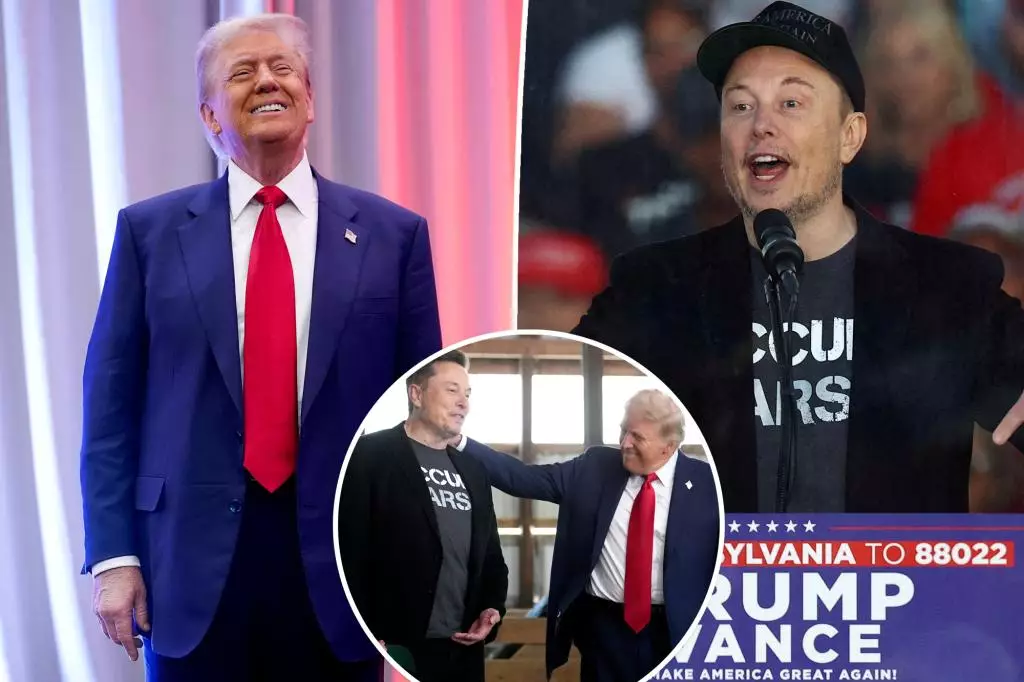The relationship between the billionaire entrepreneur Elon Musk and former President Donald Trump has become a focal point of intrigue within political and social circles. Their budding alliance stirs a mix of admiration, skepticism, and even jealousy among Trump’s inner circle, raising questions about the dynamics of power, influence, and camaraderie in political settings. While the tech mogul is sought after for his innovative ideas and forward-thinking vision, the alliances he forges seem to disrupt former confidants’ positions, reshaping the landscape of influence within Trump’s camp.
Musk’s presence at Mar-a-Lago, Trump’s lavish estate in Florida, has been consistent and significant. Reports suggest that Musk has not only become a frequent guest but has also participated in high-profile discussions, including calls alongside global leaders such as Turkey’s Recep Tayyip Erdogan and Ukraine’s Volodymyr Zelensky. Such engagements indicate that Musk’s influence extends beyond business and technology into the realm of national security and international relations. His seat at the table during these crucial talks demonstrates a level of access that many of Trump’s longtime advisors no longer enjoy, intensifying a feeling of exclusion among them.
The ongoing sessions with Musk reportedly involve deliberations over potential administrative appointments as Trump’s team prepares to shift into a new phase. An insider mentions that Trump’s previous allies in this transitional journey feel distanced, contributing to a palpable tension within the group. As Trump leans into his relationship with Musk, critiques arise regarding the narrowing of his inner circle, prompting whispers of jealousy and disappointment from those who once held more prominence.
Compounded by this growing bond is the sense of rivalry fostered within Trump’s estate. According to reports, some members of Trump’s inner circle are nursing bruised egos as they perceive Musk’s growing clout and acceptance. The nature of political circles often breeds competition, and Musk’s recent prominence seems to have catalyzed a swift recalibration of relationships that were previously deemed secure. Observers note that Trump enjoys pitting people against one another, and this newfound alliance with Musk is a prime example of such dynamics in action.
Interestingly, Trump appears to view Musk as a valuable ally, someone who not only bolsters his appeal but actively contributed to securing favor among younger, tech-savvy voters—identified as the “bro vote.” Although Musk’s ability to navigate political waters remains nuanced, his informal partnership with Trump may signal a seismic shift in how technological influence is leveraged in politics.
Among the complicated web of relationships, one figure stands out as an unexpected supporter of Musk—Melania Trump. Sources suggest that the First Lady-elect has taken a liking to Musk, further complicating the narrative and perhaps adding a layer of familial approval to the partnership. Observations of her interactions during public events indicate that she appears genuinely pleased to have Musk around. This dynamic merely underscores the multifaceted nature of relationships within Trump’s orbit, as personal and professional connections merge in ways that can alter perceptions and alliances.
While there are murmurs of dissent from those feeling sidelined, the presence of a supportive Melania adds an intriguing twist to the narrative. Trump himself has humorously remarked on Musk’s lasting presence, suggesting a unique blend of admiration and an almost playful tolerance of Musk’s ongoing involvement in his political endeavors.
Musk’s recent appointment to lead a newly proposed “Department of Government Efficiency” alongside Vivek Ramaswamy signifies a potential transformation in governmental operations, empowering Musk’s innovative mindset within bureaucratic structures. Observers will be closely monitoring how this initiative unfolds and whether his ideas can catalyze meaningful reform in the complexities of federal bureaucracy.
As the political landscape continues to evolve, the interplay between Musk’s unorthodox approach and Trump’s enduring influence may create ripples for years to come. Whether this partnership solidifies beyond social gatherings and into enactable policies remains to be seen, but one item is certain: the saga of Musk and Trump encapsulates the broader dialogue on the role of influencers in contemporary governance, revealing a new chapter in the intertwining narratives of technology and politics.
